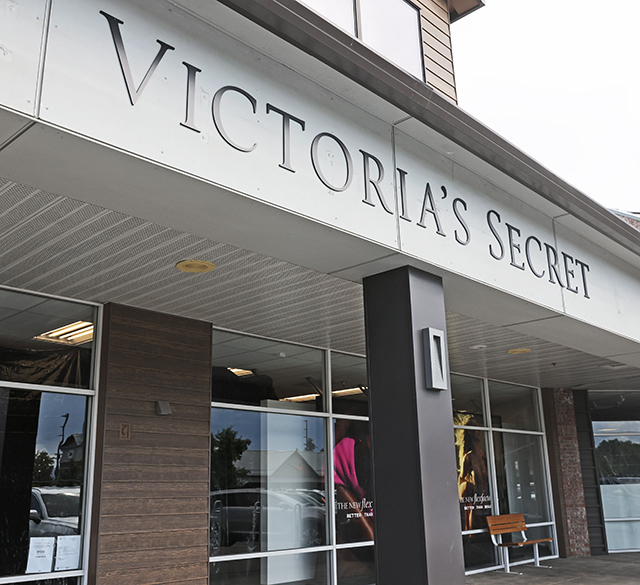Deschutes County officials weigh RV park, trail system on 500-acre lot
Published 5:45 am Thursday, August 15, 2024

- Stock image
On Bend’s northern outskirts, beyond its big box stores and parking lots, lies a 500-acre tract of juniper trees, sagebrush and dirt. While it doesn’t look like much now, a growing number of outdoor enthusiasts dream of transforming this rugged landscape into a welcoming place with multi-use trails, parks and shady campsites.
A plan to build a Deschutes County-owned RV campground and trail system west of U.S. Highway 97 and two miles north of the Bend city limits stalled earlier this month at a county meeting when two of the three Deschutes County Commissioners voiced hesitation over greenlighting the next phase of development.
Trending
But project supporters say there is still time to get the project back on track. Another opportunity to move it forward comes in September. Moving ahead hinges on commissioner approval for the county to apply for a grant that would help pay for a master conceptual plan.
More Coverage
What’s going up? Bend RV Park to provide 176 luxury accommodations
Deschutes County has no shortage of trails and campgrounds, but population growth and rising tourist numbers have left existing facilities overcrowded. RV parks and campsites book out weeks or months in advance. Kaitlyn Webb, a spokesperson for the Deschutes National Forest says her agency has no plans on the horizon to build more campsites.
Trending
Reducing stress on campsites
Deschutes County Commissioner Phil Chang says currently unused county land can help alleviate stress on existing campgrounds and he believes it can be done in a way that pays for itself.
“I can’t picture creating a day-use county park that costs money to operate with no revenue source,” said Chang. “But a revenue-neutral park or one that makes a little money for the county, like the ones in neighboring Linn County, would be great.”
But Commissioner Patti Adair has expressed doubt that the project can pencil out.
“I am not for that project. I think the costs are astronomical. The county has so many more important things that we need to do,” Adair said.
Early cost projections for the project were $21 million, but that was when the county was inquiring about a campground with 320 RV sites. With a more scaled back project concept, anticipated development costs are now in the neighborhood of $3.6 million for a 50-site facility, $7.2 million for a 100-RV park and $10.8 million for a 150-site facility. The campground might also include tent camping sites.
Those initial estimates are for RV sites with hookups, a common area dump station and developed campsites, including the roads within the RV campground, said Jen Patterson, strategic initiative manager for Deschutes County.
Paterson said grant money is available to help pay for the campground but she was unable to say what percentage could be covered by grants. Money could also come from the county’s park acquisition and development fund, which currently has around $1 million. That fund raises cash from recreational vehicle fees.
Paying for a plan
At a county commission meeting earlier this month Adair said she did not support using county funds to pay for a master conceptual plan for the campground, which is proposed to be located off Fort Thompson Lane.
Patterson said a conceptual plan could cost between $150,000 to $200,000. Oregon State Parks has a 50% match grant to cover half of the costs for the plan.
“A 50% match does not excite me,” said Adair at Aug. 5 county meeting. “If it was 100% that would be something but 50% doesn’t get me excited, so I don’t support spending $100,000 on this when we have way bigger issues.”
The master conceptual plan includes a site plan, financial analysis and an Oregon Department of Transportation study. It could also include artistic renderings of the campground. In addition to the campsite and RV pads, the area would also feature parkland and trails for walking, biking and possibly horse riding.
Chang says he supports funding the conceptual plan. A third commissioner, Tony DeBone, said more information is needed and he recommended postponing a decision. The commissioners are expected to take up the matter again in early September.
Most of the organized camping opportunities in Deschutes County occur on federal or state lands, including sites in the Deschutes National Forest and Tumalo State Park. The project at Fort Thompson Lane would be novel as a county-owned campground.
Chang said the campground would help offset the costs of maintaining the parks and trails while also helping to remedy the intense demand for campsites in Central Oregon during summer.
Creating a new county parks department to staff a future park at Fort Thompson Lane is unlikely, Chang says, and a better option would be to contract the business out to a local entity.
Pros and cons
At a community meeting last month that covered the issue, a panel of area residents panned the campground portion of the project, saying the area is undesirable for tourism and would only be useful as a temporary spot to stay for out-of-town visitors. The noise from Highway 97 is another major drawback, they said.
Meeting attendees who supported the plan said the development would reduce stress on existing campgrounds in the area and could benefit dense neighborhoods in northeast Bend.
Emmy Andrews, head of Central Oregon Trail Alliance, supported the project, saying it would provide an option for mountain biking near a part of Bend without many options for bike riders.
“There is not a big recreation place like that on the north side,” said Andrews. “So it would be a great community amenity.”
The project also has support from other non-profits in the area, including the Deschutes Trails Coalition and Oregon Equestrian Trails.
“This is an astonishing opportunity to create a park and series of amenities with the campground and the trails that pay for themselves and solves the scarcity of campgrounds,” said Kim McCarrel, a volunteer with Oregon Equestrian Trails.
DeBone said the community roundtable was a helpful information session and said he supports further discussions over the fate of the 500-acre site.
Not a new project
The idea to develop a county park emerged two years ago when the county commissioners asked for a feasibility study on some county-owned properties.
Around eight properties were considered and these were later whittled down to three options, including the Fort Thompson Lane location, as well as property near Drafter Road in La Pine and another location in Crooked River Ranch.
A feasibility study for the three properties was also opposed by Adair but it went ahead anyway due to support by Chang and DeBone. That study, completed last year, eliminated the Crooked River Ranch location but left the other two as options to consider.
The Drafter Road location is moving ahead and next steps include public announcements and requesting bids from contractors.
For the Fort Thompson Lane location, the next step is a master plan, which would require support from at least two county commissioners. The window to apply for a grant from Oregon State Parks closes on Oct. 1 and getting the grant proposal written would take a few weeks, said Patterson.
The commissioners “are trying to decide if they want to move forward with those exploratory steps.” said Patterson.








